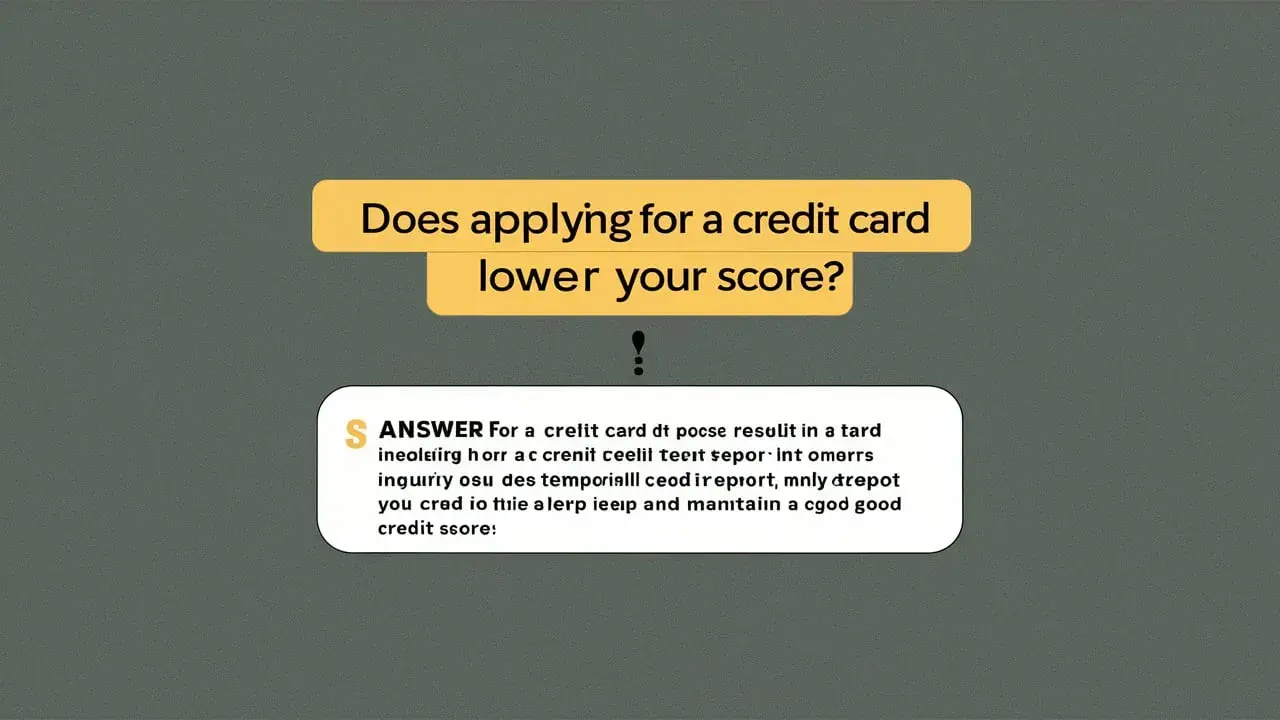-
Posted on: 05 Jan 2023

-
Dealing with debt collectors can be a stressful and overwhelming experience. It's crucial to understand your rights and avoid common mistakes that can negatively impact your finances and credit score. This comprehensive guide outlines the key errors to steer clear of when interacting with debt collectors, ensuring you navigate the process as effectively and favorably as possible. We'll cover everything from knowing your rights under the Fair Debt Collection Practices Act (FDCPA) to understanding debt validation and settlement options.
Understanding Your Rights Under the FDCPA
The Fair Debt Collection Practices Act (FDCPA) is a federal law that protects consumers from abusive, unfair, or deceptive debt collection practices. Knowing your rights under the FDCPA is your first line of defense against aggressive or illegal collection tactics.
Key Provisions of the FDCPA:
- Limitations on Contact: Debt collectors cannot call you before 8:00 a.m. or after 9:00 p.m. They also can't contact you at work if they know your employer prohibits such calls.
- Cease Communication: You have the right to send a written request to the debt collector asking them to stop contacting you. While this won't make the debt disappear, it can significantly reduce the stress of constant calls and letters. However, the collector can still pursue legal action against you to recover the debt.
- Validation of Debt: You have the right to request written validation of the debt. This includes the name of the creditor, the amount of the debt, and evidence that you owe the debt. Debt collectors must provide this information within five days of their initial contact with you.
- Prohibition of Harassment: Debt collectors are prohibited from using abusive, deceptive, or unfair practices to collect a debt. This includes using threats, obscene language, false statements, or misrepresenting themselves as government officials.
- Third-Party Communication: Debt collectors generally cannot discuss your debt with third parties, such as your family members, friends, or neighbors, without your permission. The exception is to locate you, but they can only ask for your home address, phone number, and place of employment.
Common Mistakes to Avoid When Dealing with Debt Collectors
Even with a strong understanding of the FDCPA, it's easy to make mistakes that can complicate your situation. Here's a breakdown of the most common errors and how to avoid them:
1. Ignoring the Debt Collector
One of the biggest mistakes you can make is ignoring the debt collector altogether. While the stress of dealing with debt might make you want to avoid the issue, ignoring it won't make it go away. In fact, it can make the situation worse. Ignoring a debt collector can lead to:
- Escalated Collection Efforts: The debt collector may become more aggressive in their attempts to contact you, potentially leading to harassment.
- Legal Action: If the debt is valid, the collector may eventually sue you to recover the debt. Ignoring a lawsuit can result in a default judgment against you, which can allow the collector to garnish your wages, seize your assets, or place a lien on your property.
- Negative Impact on Credit Score: Even if you haven't been sued, ignoring the debt can further damage your credit score. Delinquent accounts are reported to credit bureaus and can stay on your credit report for up to seven years.
Solution: Acknowledge the debt collector's communication. Respond with a certified letter requesting validation of the debt (more on this below). Even if you dispute the debt, responding is crucial.
2. Not Requesting Debt Validation
Debt validation is your right under the FDCPA. It forces the debt collector to prove that the debt is valid and that they have the legal right to collect it. Failing to request debt validation is a significant mistake.
Why Request Debt Validation?
- Ensures Accuracy: Sometimes, debt collectors attempt to collect on debts that are incorrect, have already been paid, or are not actually owed by you.
- Verifies Ownership: The debt collector must prove they have the legal right to collect the debt. This is especially important with debts that have been sold to different collection agencies.
- Delays Collection Efforts: While the debt collector is gathering the information required for validation, they are generally prohibited from continuing collection efforts.
What to Include in Your Debt Validation Request:
- Your name and address
- The debt collector's name and address
- The account number associated with the debt
- A statement that you are requesting validation of the debt
- A request for specific documentation, such as:
- The original creditor's name and address
- A copy of the original contract or agreement that created the debt
- Documentation showing how the debt was calculated
- Proof that you are responsible for the debt
- Proof that the debt collector is authorized to collect the debt
Solution: Send a written request for debt validation via certified mail with return receipt requested within 30 days of the debt collector's initial communication. Keep a copy of your request and the return receipt for your records.
3. Admitting to the Debt Without Verification
Even if you believe you owe the debt, admitting to it without verification can be problematic. Confirming the debt before validation gives the collector an advantage, even if the original amount is incorrect or the statute of limitations has expired. Don't confirm the debt is yours until you've seen proof.
Solution: Never acknowledge the debt's validity until you receive proper validation. Use phrases like "I am requesting validation of this debt" rather than "I understand I owe this amount."
4. Making Payments Without a Written Agreement
Making payments without a written agreement can be a costly mistake. Without a clear understanding of the terms of the agreement, you could end up paying more than you owe or unknowingly reviving a time-barred debt.
Why is a Written Agreement Important?
- Confirms Settlement Amount: If you're negotiating a settlement for less than the full amount owed, a written agreement ensures that the collector will accept the reduced amount as full payment.
- Outlines Payment Schedule: A written agreement specifies the amount and frequency of your payments, preventing misunderstandings or disputes.
- Protects Against Continued Collection Efforts: The agreement should clearly state that the debt collector will cease collection efforts once the terms of the agreement are met.
Solution: Never make a payment on a debt until you have a written agreement that clearly outlines the terms of the settlement, including the total amount due, the payment schedule, and a statement that the debt will be considered paid in full once the terms are met.
5. Failing to Document All Communications
Failing to document all communications with debt collectors is a critical error. Good documentation provides a record of what was said and when, which can be invaluable if you need to dispute the debt, file a complaint, or take legal action.
What to Document:
- Dates and Times of Calls: Record the date, time, and duration of each phone call with the debt collector.
- Names of Representatives: Note the name of the debt collector representative you spoke with.
- Summary of Conversations: Write down a detailed summary of the conversation, including the topics discussed, any agreements reached, and any threats or abusive language used by the debt collector.
- Copies of All Correspondence: Keep copies of all letters, emails, and other written communications you send to or receive from the debt collector.
Solution: Keep a detailed log of all communications with debt collectors. Consider recording phone calls (if permitted by law in your state). Always send correspondence via certified mail with return receipt requested.
6. Ignoring the Statute of Limitations
The statute of limitations is the time limit within which a creditor can sue you to collect a debt. After the statute of limitations has expired, the debt is considered "time-barred," and the creditor can no longer take legal action to recover it. However, they can still attempt to collect voluntarily.
Important Considerations:
- Statute of Limitations Varies: The statute of limitations varies by state and by the type of debt. It's crucial to know the statute of limitations in your state for the specific type of debt you're dealing with.
- Reviving the Debt: Certain actions can revive a time-barred debt, meaning the statute of limitations starts over. These actions include:
- Making a payment on the debt
- Acknowledging the debt in writing
- Debt Collectors May Still Attempt Collection: Even though a debt is time-barred, debt collectors may still attempt to collect it. It's important to know your rights and to assert the statute of limitations defense if you are sued on a time-barred debt.
Solution: Determine the statute of limitations in your state for the type of debt you're dealing with. Be careful not to make any payments or acknowledge the debt in writing, as this could revive the debt and allow the creditor to sue you.
7. Providing Unauthorized Access to Bank Accounts
Never, under any circumstances, provide a debt collector with access to your bank account. This is a common tactic used by unscrupulous collectors, and it can lead to unauthorized withdrawals and financial ruin. Avoid sharing your account number, routing number, or any other sensitive financial information.
Solution: Refuse to provide any bank account information. If you agree to a payment plan, use a secure method like a money order or certified check. Never give a debt collector electronic access to your accounts.
8. Trusting Verbal Agreements
Verbal agreements with debt collectors are rarely enforceable and can easily be disputed. Always get everything in writing, no matter how trustworthy the collector seems. This includes settlement agreements, payment plans, and promises to cease collection efforts.
Solution: Insist on written confirmation for every agreement made. Review the document carefully before agreeing and ensure it reflects the terms you discussed.
9. Not Knowing the Difference Between a Debt Collector and Original Creditor
It's important to distinguish between a debt collector and the original creditor. A debt collector is a third-party company that purchases debts from the original creditor (like a bank or credit card company) and attempts to collect them. The FDCPA applies specifically to debt collectors, not original creditors. Knowing this distinction helps you understand which laws protect you and how to handle communication.
Solution: Identify who you are dealing with. If it's a debt collector, be aware of your rights under the FDCPA and use them. If it's the original creditor, you may have more flexibility in negotiating a repayment plan or settlement.
10. Delaying Seeking Professional Help
If you're struggling to manage debt collection efforts or feel overwhelmed by the process, don't hesitate to seek professional help. A qualified attorney, credit counselor, or debt management professional can provide valuable guidance and support.
When to Seek Help:
- If you're being harassed or threatened by a debt collector.
- If you're unsure of your rights under the FDCPA.
- If you've been sued by a debt collector.
- If you're considering bankruptcy.
- If you simply feel overwhelmed and need assistance managing your debt.
Solution: Research and find a reputable attorney or credit counselor who specializes in debt collection issues. Obtain referrals from trusted sources and check their credentials and reviews before engaging their services.











